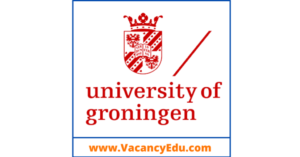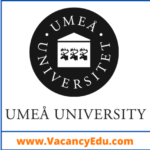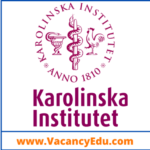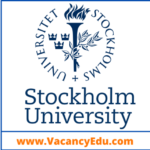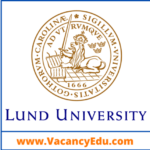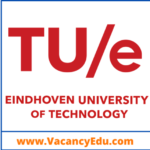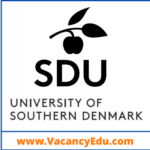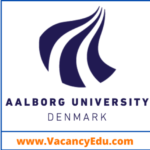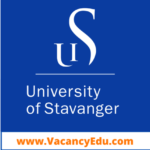University of Groningen, Netherlands invites online Application for number of Fully Funded PhD Degree at various Departments. We are providing a list of Fully Funded PhD Programs available at University of Groningen, Netherlands.
Eligible candidate may Apply as soon as possible.
(01) PhD Degree – Fully Funded
PhD position summary/title: PhD “The roles of siblings and school peers in young adults’ life-course events” (V24.0433)
The PhD researcher will work in the project ‘The roles of siblings and school peers in young adults’ life-course events’, led by Principal Investigator Clara H. Mulder and funded by an Open Competition Large grant from the Dutch Science Foundation (NWO). The research team will further include a postdoc researcher, an assistant professor who will co-supervise the PhD project, and collaborators from the University of Groningen and Statistics Netherlands (CBS). In the project, we aim to identify the roles of siblings and school peers in the occurrence, timing, and outcomes of important life-course events in young adulthood. The events are leaving the parental home, residential relocations, and entry into post-secondary education and the labour market. We will investigate differentiation in sibling and school-peer roles with regard to advantage versus disadvantage, gender, migrant background, age, and time period. We will use register data covering the entire population of young adults in the Netherlands, including newly developed family and school-peer network data, and analyse these data with advanced statistical methods. The results may help combat inequality and enhance young adults’ ability to realise their potential. The envisaged role of the PhD researcher will be to work on leaving the parental home or, according to preference and expertise, residential relocations (residential mobility, internal migration). The end product will be scientific journal articles, to be combined in a PhD thesis. The PhD researcher will also write outreach articles and help organise stakeholder workshops. A contribution to teaching is expected.
Deadline :21 October 2024
(02) PhD Degree – Fully Funded
PhD position summary/title: PhD scholarship on corpus-assisted multimodal argumentation with a focus on hate speech (V24.0426)
The Faculty of Arts and the Faculty of Philosophy (both at the University of Groningen, NL) offer a four year studentship to complete a PhD within a joint interdisciplinary project led by Dr Dimitris Serafis (Faculty of Arts), Dr Janina Wildfeuer (Faculty of Arts) and Dr Jan Albert van Laar (Faculty of Philosophy). The proposed PhD research project will be embedded in the Department of Communication and Information Studies at the Faculty of Arts.
This PhD project offers a unique opportunity to work in an international environment and to acquire valuable research experience.
Visual argumentative inferences and soft hate speech online: A corpus-based multimodal argumentative perspective to raise critical awareness (funded by the Ubbo Emmius Foundation).
The PhD project lies at the intersection of corpus-assisted multimodality research and argumentation theory. It focuses on the analysis of subtle forms of hate speech (soft hate speech) through an examination of the interplay of headlines, captions and press photos in online media communication. By combining the aforementioned methodologies, this project aims at providing evidence on the multimodal realization of soft hate speech in online media and, most importantly, the rationalization of the phenomenon in large corpora of online news portals articles. In doing so, the project aims to offer new proposals for raising critical awareness among the general public.
Deadline : 3 October 2024
View All Fully Funded PhD Positions Click Here
(03) PhD Degree – Fully Funded
PhD position summary/title: PhD: The resilience of biological feedbacks and their influence on sediment dynamics (1,0 FTE) (V24.0420)
The Wadden Sea is ‘the largest unbroken system of intertidal sand and mud flats in North western Europe. People living in the Wadden Sea area depend on the ecosystem services provided by a naturally dynamic and resilient ecosystem. At present, however, these characteristics are increasingly threatened by complex pressures of climate change, pollution, biodiversity loss and human activities. The collective of Wadden Sea stakeholders increasingly realize that the future of the Wadden Sea depends on whether ‘natural processes’ can continue to proceed ‘largely undisturbed’. To warrant this, it is crucial to safeguard the interactions between geomorphological and ecological processes, as they form the foundation of the system and underpin biodiversity.
In a collaborative project called SedWay, researchers and practitioners from the Netherlands and Germany will work together to create new syntheses and empirical observations on how the processes associated with three selection criteria (geomorphology, ecology and biodiversity) interact and how past, current, and future human interferences interrupt these interactions. The project consists of five work packages (WP’s): 1) Meta-analysis of sediment dynamics effects on biodiversity; 2) Empirical evidence for biophysical feedbacks and habitat suitability; 3) Socio-ecology of an un-/disturbed sedimentary system; 4) Spatial Quality of Wadden Sea sediment strategies; and 5) Co-designed online decision/support system. The position offered here is part of WP2 and will focus on understanding how reef-forming mussels and oysters interact with sediment dynamics to facilitate their own growth and survival, and help shape the Wadden Sea ecosystem of channels and intertidal flats.
Deadline : 2 October 2024
(04) PhD Degree – Fully Funded
PhD position summary/title: PhD Optimal dynamic energy pricing policies under economic and network constraints (V24.0431)
The energy market has witnessed a tremendous amount of challenges in the last years. Power grids have appeared unable to reliably keep the pace with technological, political and economic changes. Existing solutions are not enough to adequately address the challenges that have emerged. A successful energy transition requires a multidisciplinary approach. The aim of this project is to design optimal control mechanisms to stabilize the power grid using a challenging cross-disciplinary perspective. This requires taking into account both technical constraints as well as the incentives of firms and consumers. The interdisciplinary development of novel advanced power grid control schemes is a crucial contribution to the EU’s drive for clean-energy transition.
The PhD position is embedded in the Wubbo Okkels School for Energy and Climate at the University of Groningen, and is funded by the Ubbo Emmius Foundation. This project is a multidisciplinary endeavour between the Faculty of Economics and Business (FEB) and the Faculty of Science and Engineering (FSE). The project will be jointly supervised by Prof. M.A. Haan, Dr O.V. Iftime (both at Department of Economics, Econometrics & Finance, FEB) and Prof. S. Trenn (System, Control and Optimization group, Bernoulli Institute for Mathematics, Computer Science and Artificial Intelligence, FSE ). The PhD candidate will be located at FEBRI, the graduate school of FEB.
Deadline : 1 October 2024
(05) PhD Degree – Fully Funded
PhD position summary/title: PhD position Human versus Artificial: A Radical Embodied Turing Test (1.0 FTE) (V24.0397)
The rise of AI is accompanied by an equal rise of the worry about how to distinguish human-made from AI-generated output. In this project we investigate both the structural differences between human-made and AI-generated output as well as people’s differential behavioural and physiological responses to them. Concretely, we will study: (1) the spatiotemporal patterns of human-made and AI-generated images/artworks, texts and conversations; (2) people’s behavioural and physiological responses when viewing and reading human-made and AI-generated images/artworks and texts, respectively; (3) the extent and effects of synchronisation when people engage in conversations with chatbots. The goal is to develop a Radical Embodied Turing Test (RETT), on which next-generation AI-detection tools can be based and which can also help to enhance user experience with AI.
Deadline : October 1st, 2024
Polite Follow-Up Email to Professor : When and How You should Write
Click here to know “How to write a Postdoc Job Application or Email”
(06) PhD Degree – Fully Funded
PhD position summary/title: PhD Economic and Political integration in the Roman Empire (1.0 FTE) (V24.0393)
Applications are invited for a fully-funded four-year PhD position in the field of Roman History and Archaeology. The prevised project focuses on wealth concentration and political integration of the provincial elites in the Roman empire.
Recent research suggests that the elites from a few particular provinces were preferentially integrated into the top political networks of the Roman Empire (the senate at Rome). There is a clear relationship between access to these political networks and the accumulation of large personal wealth. This PhD project explores the broader socio-economic context in which these elites were accumulating the required capital for entry into the Roman senate. The core of the project constitutes a comparison of the socio-economic background of elite wealth accumulation in two Roman provinces: the politically well-integrated province Hispania Baetica and the politically less-integrated province Hispania Tarraconensis. For these two provinces, the project investigates the level of regional economic integration (using for example settlement hierarchies and/or infrastructural networks) and the demographic/agricultural structure (using, for example, field survey or site excavation data). The project results will provide a detailed framework to understand the regional variation in wealth accumulation and political participation across the Roman empire. A more elaborate description of the project framework is available upon request (see contact details below).
Under the joint supervision of Dr Tymon de Haas (Archaeology) and Dr Bart Danon (Ancient History), with Prof. Tesse Stek as the professor of record, the successful candidate will develop their own specific focus within these broad parameters, depending on the candidate’s disciplinary background, interests and research experience.
Deadline : before 1 October
(07) PhD Degree – Fully Funded
PhD position summary/title: PhD position Reading the Female Body in the Early Modern Low Countries (1500-1800) (V24.0346)
Applications are invited for a fully-funded four-year PhD position in Dutch cultural history at the University of Groningen, focusing on the representation, imagination and scholarly study of the female body in the early modern Low Countries (1500-1800).
In the early modern Low Countries, the human body became a subject of debate in various new religious, intellectual and cultural contexts. Bodies were displayed, studied, dissected, damaged and imagined in many domains, ranging from (anatomical) theaters and art studios to universities, courtrooms and scaffolds. In each domain and discourse, the human body functioned not just as a materiality of blood and bones, but also as a cultural symbol remediated in images, narratives and other representations. These early modern debates about bodies often intersected with discourses about femininity and masculinity. Several complex and contradictory historical developments in art, literature, medicine and philosophy changed the ways female bodies in particular were perceived in the early modern Low Countries.
This project aims to work towards a better understanding of the interplay between the discourses and cultural industries that produced imaginations and knowledge about female bodies in the Low Countries between roughly 1500 and 1800. It reconstructs the interconnection between various discourses about female and male anatomy and sexuality and contextualizes those discourses in the specific historical and cultural circumstances of the Low Countries. The project’s main research questions are: How were female bodies viewed, defined and represented in academic, literary, artistic, medical, legal and/ or philosophical early modern Dutch (and/ or Neo-Latin) discourses? How were views and representations of sex and gender changed and shaped by the specific historical conditions and developments in the Low Countries between 1500-1800?
In the PhD project, jointly supervised by Dr Karen Hollewand (Cultural Heritage, Identity, and Early Modern History) and Dr Lucas van der Deijl (Historical Dutch Literature) and with Prof. Bart Ramakers (Historical Dutch Literature) or Prof. Rina Knoeff (Early Modern Medical History) as promotor, the selected candidate will identify their own interdisciplinary focus and interest within the broad framework set out above. Candidates are asked to formulate and explain their focus in a research proposal, in which they describe the research idea, possible primary sources, and academic disciplines relevant to the project. Please note that an interdisciplinary focus is fundamental to this project, which means that candidates are encouraged to find connections between different disciplines and types of sources. A more extensive outline of the project, including a list of potential sources and methods, can be requested from the project PI’s (see the contact info below).
Since its foundation in 1614, the University of Groningen has established an international reputation as a dynamic and innovative university offering high-quality teaching and research. Its 34,000 students are encouraged to develop their own individual talents through challenging study- and career paths. The University of Groningen is an international centre of knowledge: It belongs to the best research universities in Europe and is allied with prestigious partner universities and networks worldwide.
Deadline : 2 October 2024
(08) PhD Degree – Fully Funded
PhD position summary/title: PhD position Migration and Human Capital (V24.0432)
Migration and human capital are critical factors shaping socioeconomic transformations in the world. This PhD project aims to employ (quasi-)experimental methods to investigate these dynamics through the lens of development economics.
In collaboration with the German Development Bank (KfW) and local authorities, a major focus of the PhD project consists of the impact evaluation of Perspectivas, a program that supports the successful reintegration of thousands of migrant returnees in Central America. These returnees often bring a diverse set of skills, making them potentially valuable contributors to the economies of their origin communities. However, they may face significant obstacles upon their return, such as limited employment prospects, disrupted social ties, and stigma. To address these issues, Perspectivas will implement active labour market policies such as skills training, job search assistance, and psychosocial care. The PhD project seeks to understand the socioeconomic conditions and challenges faced by migrant returnees. By applying (quasi-)experimental methods, researchers will rigorously assess the causal effects of active labor market policies on the productive reintegration of returnees.
Beyond the impact evaluation, the PhD project envisions broader analyses delving into the role of human capital and migration in economic development. Overall, the research will provide valuable evidence on human capital dynamics in the migration context and the effectiveness of migration policies, thereby informing practitioners and contributing to the economics literature.
The PhD position is embedded in the research programme Global Economics & Management of FEB’s Research Institute. The project will be supervised by Assistant Professor Dr Marcello Perez.
Deadline : 30 September 2024
Click here to know “How to Write an Effective Cover Letter”
(09) PhD Degree – Fully Funded
PhD position summary/title: PhD position in Global rap performance (1.0 FTE) (V24.0374)
Global rap performance: exploring linguistic and musical diversity in rap cultures and practices across the globe
Ever since hip-hop’s inception, rap has become one of the most popular and influential forms of music worldwide. As it spread around the world, the art of rap interacted with and was affected by a variety of regional dialects, languages, and musical cultures, resulting in distinct rap cultures and practices across the globe (e.g., West Coast gangsta rap, UK grime, reggaeton, baile funk, Nederhop).
This project aims to elucidate how rap in its various forms relates to linguistic and musical diversity. It explores the ways in which rap cultures move, migrate and manifest new approaches to MCing and its (live) performance, thinking through how (minority) languages and local musical histories affect creative output. Performance is a central theme, and the PhD candidate will explore how tenets of Black Atlantic practice (such as antiphony) are re-performed or re-worked depending on context.
Candidates will be expected to have a Master’s degree in an appropriate discipline (e.g., linguistics, musicology, cultural studies, anthropology), and have existing research interest – and ideally practitioner’s experience – on rap cultures, broadly speaking. Additionally, candidates are expected to have an affinity for multidisciplinarity and a desire to work on the intersection of musicology and linguistics. Furthermore, applicants from global majority backgrounds are especially recommended to apply.
The PhD candidate will be enrolled in the Graduate School for the Humanities (GSH), and embedded within both the Center for Language and Cognition Groningen (CLCG) and the Groningen Research Institute for the Study of Culture (ICOG). With Prof. Merel Keijzer as the professor of record, this project is primarily supervised by linguist Dr Steven Gilbers, who brings expertise in linguistic diversity and the analysis of (collaborative) rap, and musicologist Dr Alex de Lacey, who brings expertise in live performance in grime and hip-hop.
Deadline : 23 September 2024
(10) PhD Degree – Fully Funded
PhD position summary/title: PhD Spatial-temporal lay out of energy infrastructure (1.0 FTE) (V24.0408)
The future energy system in the North Sea Region may have a capacity of 300-400 GWe wind offshore electricity generation capacity and will cover a large area, as well as large scale energy infrastructure, artificial islands as energy hubs and as a consequence have a large spatial and environmental footprint. Previous research has (already) highlighted that the importance of balancing spatial functions and claims and spatial planning in combination with the design of the energy infrastructure is key to minimize impacts, conflicts as well as moderating the costs of this future energy system. Furthermore, previous research identified that international alignment and collaboration is essential for a balanced and ecosystem based expansion of offshore electricity generation on a marine basin scale. For informing international strategies for balancing offshore electricity generation with other offshore uses and ecosystems, better analytical tools and methods are needed that combine spatial and institutional analysis to help determine future locations and trajectories for infrastructure and energy generation capacity.
This PhD project will build on existing spatial planning analysis and environmental impact analysis tools and have close collaboration with several other PhD projects in this program, e.g. on scenario analysis and system modelling and accelerating implementation. The PhD project will also directly benefit from collaboration with the NWO ECOAMARE project conducted within the same Department, which targets the further development of spatial planning analysis and environmental impact analysis tools. Some of the research challenges are in understanding the impacts of realizing new infrastructure (cables, gas pipelines) and energy hubs (such as artificial islands) around the wind off-shore (and expectedly complementary other energy generation ) capacity and how this can affect the lay out of this future energy infrastructure.
Deadline : 20 September 2024
Connect with Us for Latest Job updates
(11) PhD Degree – Fully Funded
PhD position summary/title: PhD position in Biophysics (V24.0413)
The Heinemann Lab at the University of Groningen (Netherlands) aims to understand how cellular metabolism functions and how metabolism controls other cellular processes.
The lab has recently found that cellular metabolism does not operate beyond a certain Gibbs energy dissipation rate (Niebel et al, 2019, Nature Metabolism). This observation could explain why cancer cells use a particular mode of metabolism. We are now highly interested to uncover the molecular mechanism that is responsible for this thermodynamic limit. Here, we hypothesize that enzymes during their catalysis get actively displaced in space, inducing increased molecular motion in the cell and mixing up the cytoplasm. We have described this hypothesis in a recent perspective article (Losa et al, 2022, Molecular Systems Biology).
In this project, we like to explore the above mentioned hypothesis. To this end, we will use the bacterium E. coli as a model and will perform highly sophisticated experiments with super-resolution microscopy and dynamic particle tracking techniques to measure diffusion rates in cells. Furthermore, in model-based experimental analyses, we aim to determine the Gibbs energy dissipation rates under different metabolic conditions. Together, this will hopefully give us further insights.
Exploring how an active metabolism as an out-of-equilibrium system induces intracellular motion is not only a great scientific adventure, with the potential to open up a new avenue how dynamic cellular metabolism might control cellular processes (i.e. through motion), but it also harbors significant potential for medicine and biotechnology, where metabolism plays a key role.
Deadline : 16 September 2024
Polite Follow-Up Email to Professor : When and How You should Write
(12) PhD Degree – Fully Funded
PhD position summary/title: PhD position Multiscale modelling of hydrogen-induced fatigue in steels 1.0 FTE (V24.0407)
For the HyTROS project awarded by the Dutch Research Council (NWO) on hydrogen transport, offshore and storage, a PhD position for the period is available in the context of modelling hydrogen embrittlement of pipeline steels. In this project, the University of Groningen, in collaboration with TU Delft, will unravel the fundamental origin of hydrogen-induced fatigue crack growth by a multi-scale modelling approach. The focus of this position is the atomistic modelling of crack propagation in steels in presence of hydrogen and inhibiting gases (e.g. ppm oxygen), as well as scale bridging from atomistic to microscale crystal plasticity simulations. This includes the development of a quantum-accurate interatomic potential to study crack propagation and hydrogen embrittlement in pipeline steels.
It is well known that hydrogen enhances the fatigue crack growth (HFCG) rate. The physical mechanism at the origin of this phenomenon is however unknown. Detailed understanding of HFCG would allow for optimal usage of (existing) pipelines for hydrogen transport. Furthermore, recent investigations have revealed that mixing small ppm oxygen/inhibiting gases could mitigate HFCG, yet the reason for this is not understood. This project aims at providing a mechanistic model for HFCG and unraveling the mechanism behind gaseous inhibition of HFCG.
The successful candidate will be co-supervised by dr. Francesco Maresca from the Computational Mechanical and Materials Engineering (CMME) unit of the Engineering and Technology institute Groningen (ENTEG) and by Prof. Erik van der Giessen from the Micromechanics unit of the Zernike Institute for Advanced Materials.
Deadline : 16 September 2024
(13) PhD Degree – Fully Funded
PhD position summary/title: PhD Psychological Guidance for Youngsters in Early Modern Times (1.0 FTE) (V24.0395)
Contemporary “psychological society” emphasizes psychological identity. It can be interpreted as a historical shift towards individuality which began in the early modern period. It was the time when humanists relied on the theory of humors and temperaments to assess a person´s intellectual capacities and emotional inclinations. The idea was not only to explain the way human beings act but also to find useful guidelines for the counselling of young people. One example of such a psychological work of the 16th century was Juan Huarte de San Juan’s “The Examination of Men’s Wits” (1575). In it, the Spanish physician emphasizes human differences, drawing inspiration from Aristotle, Galen, Hippocrates, and others. The exploration of body humors led to the revolutionary idea that evaluating individual capacities and talents is essential for ensuring a well-functioning society.
Despite the research that has been done to this date showing that early modernity was a crucial time period when human beings start to become an object of empirical study, there are still many open questions. At the time, Erasmus, Vives, or Huarte circulated explanations about human differences using a terminology based on “ingenium” (intellect) and “natural ability”. They used such terms when proposing guidelines to match individuals with societal needs, a strategy that awaits thorough historical assessment. The work of these humanists has remained relatively obscure in today´s history of psychology textbooks. Thus, more research is needed to examine the humanists’ psychological concepts and the extent to which their temperamental psychology contributed to a new understanding of the individual.
Deadline : 16 September 2024
(14) PhD Degree – Fully Funded
PhD position summary/title: PhD position How political parties debate (1.0 FTE) (V24.0394)
How political parties debate: comparing the drivers and impact of political rhetoric in the European Parliament and domestic legislatures
Applications are invited for a fully-funded four-year PhD position in the field of European Politics (1.0 FTE), focusing on understanding on how political parties talk about sensitive issues in the European parliament and in their home legislatures and across different types of parties. It also seeks to understand what explains their rhetorical choices and it investigates the role of political rhetoric in shaping public interpretation of these issues.
Under the joint supervision of Dr Adrian Favero and Dr Martijn Schoonvelde, and with Prof. Pieter de Wilde as the professor of record, the successful candidate will develop their own specific focus within the theme of the project, depending on their own interests and research experience. You will be embedded in the Graduate School of Humanities, and within the Chair Group European Politics and Society, a diverse, multidisciplinary and motivated group of academic researchers.
Ultimately, the project seeks to provide a comprehensive understanding of how political parties’ framing of sensitive issues affects public discourse and democratic engagement, examining the interplay between political communication, ideology, and multilevel governance. How are sensitive issues, such as migration, identity, gender, race, globalization, and economic hardship – to name just a few – framed in parliamentary debates?
A key aspect of this research involves analyzing the relationship between political parties and the levels of governance—national and EU—where they operate. The historical rootedness of parties in domestic politics versus their engagement at the EU level offers a complex backdrop against which parties select and frame issues.
Deadline : 16 September 2024
(15) PhD Degree – Fully Funded
PhD position summary/title: PhD in Systems and Control (V24.0353)
A fully funded PhD position in the broad field of systems and control is available at the University of Groningen, the Netherlands. The specific subject of the project will be determined collaboratively with the selected candidate to ensure a good fit and to attract top talent. Possible topics include, but are not limited to, the following: systems and control theory, feedback optimization, distributed control, consensus protocols, nonlinear control, robust control, with application to energy systems (e.g. smart grids, district heating, hydrogen networks) and traffic networks.
Apart from the research project, the candidate is expected to contribute (~10% of total workload) to the teaching and supervision of Bachelor and Master students.
The position will be supervised by Prof. Michele Cucuzzella, and the candidate will be embedded at the Engineering Technology Institute of the University of Groningen (ENTEG). ENTEG research is highly multidisciplinary in nature and focuses on both fundamental and applied research. The candidate will be a member of the Jan C. Willems Center for Systems and Control which is recognized for its long tradition in mathematical systems theory and its strength in linear/nonlinear systems analysis and control of complex networks. According to the Shanghai Academic Ranking of World Universities (ARWU) 2023, Automation and Control Engineering at the University of Groningen is ranked 3rd in Europe and 19th worldwide.
The University of Groningen is a research university with a global outlook, deeply rooted in Groningen, City of Talent. Quality has had top priority for four hundred years, and with success: the University is currently in or around the top 100 on several influential ranking lists.
Deadline : Open until filled
(16) PhD Degree – Fully Funded
PhD position summary/title: PhD in Intelligent Information & Incentive Design for Cyber-Physical Systems (V24.0341)
A fully funded PhD position is available at the University of Groningen, the Netherlands. The PhD project focuses on utilizing control theory, optimization, and learning algorithms to design intelligent system operators that guide user behavior toward socially desirable outcomes. By integrating theory with practical applications, the research aims to transform how we navigate cyber-physical systems in the digital age, with applications in power systems and traffic networks, where user interactions with the system operator are essential.
Apart from the research project, the candidate is expected to contribute (~10% of total workload) to the teaching and supervision of Bachelor and Master students.
The position will be supervised by Prof. Nima Monshizadeh and Prof. Bayu Jayawardhana, and the candidate will be embedded at the Engineering Technology Institute of the University of Groningen (ENTEG). ENTEG research is highly multidisciplinary in nature and focuses on both fundamental and applied research. The candidate will be a member of the Jan C. Willems Center for Systems and Control which is recognized for its long tradition in mathematical systems theory and its strength in linear/nonlinear systems analysis and control of complex networks. According to the Shanghai Academic Ranking of World Universities (ARWU) 2023, Automation and Control Engineering at the University of Groningen is ranked 3rd in Europe and 19th worldwide.
The University of Groningen is a research university with a global outlook, deeply rooted in Groningen, City of Talent. Quality has had top priority for four hundred years, and with success: the University is currently in or around the top 100 on several influential ranking lists.
Deadline : Open until filled
About The University of Groningen, Netherlands –Official Website
The University of Groningen is a public research university in the city of Groningen in the Netherlands. The university was founded in 1614 and is the second-oldest university in the Netherlands. In 2014, the university celebrated its 400th anniversary. Currently, RUG is placed in the top 100 universities worldwide according to three international ranking tables.
The university was ranked 65th in the world, according to Academic Ranking of World Universities (ARWU) in 2019. In April 2013, according to the results of the International Student Barometer, the University of Groningen, for the third time in a row, was voted the best university of the Netherlands.
The University of Groningen has eleven faculties, nine graduate schools, 27 research centres and institutes, and more than 175-degree programmes. The university’s alumni and faculty include Johann Bernoulli, Aletta Jacobs, four Nobel Prize winners, nine Spinoza Prize winners, one Stevin Prize winner, royalty, multiple mayors, the first president of the European Central Bank, and a secretary general of NATO.
Disclaimer: We try to ensure that the information we post on VacancyEdu.com is accurate. However, despite our best efforts, some of the content may contain errors. You can trust us, but please conduct your own checks too.
Related Posts
- 08 PhD Degree-Fully Funded at Umea University, Sweden

- 12 PhD Degree-Fully Funded at Karolinska Institute, Sweden

- 19 PhD Degree-Fully Funded at Stockholm University, Sweden

- 19 PhD Degree-Fully Funded at University of Antwerp, Belgium

- 20 PhD Degree-Fully Funded at Lund University, Scania, Sweden

- 36 PhD Degree-Fully Funded at Eindhoven University of Technology, Netherlands

- 15 PhD Degree-Fully Funded at University of Southern Denmark, Denmark

- 15 PhD Degree-Fully Funded at Aalborg University, Denmark

- 09 PhD Degree-Fully Funded at University of Stavanger, Norway


